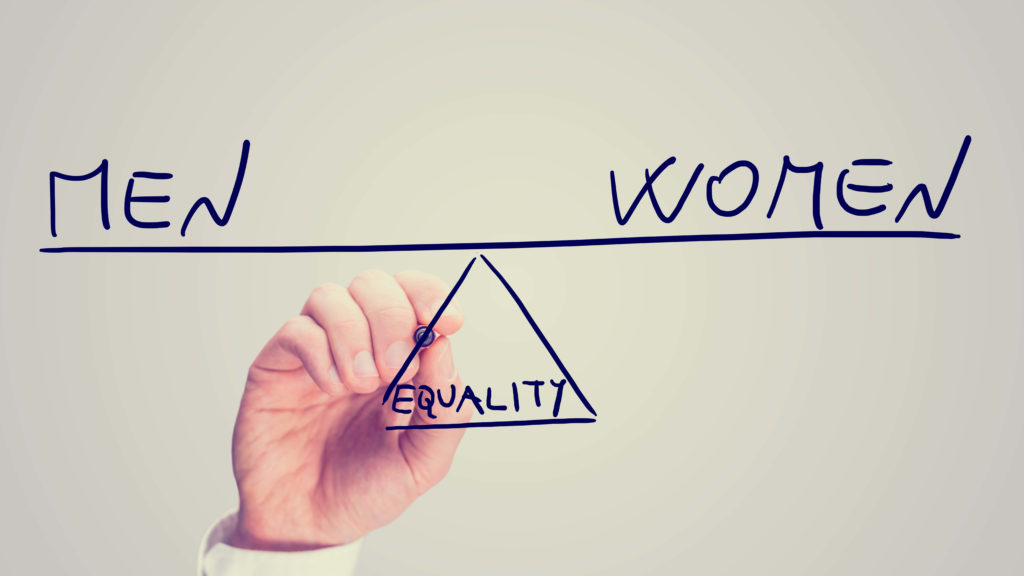Work With an Experienced Gender Discrimination Lawyer
What Is Gender Discrimination?
Gender discrimination is a common civil rights violation that can come in the form of sexual harassment, unequal pay and pregnancy discrimination. It occurs when someone receives unequal treatment because of that person’s gender.
Although legal acts protect against this type of discrimination, it is still quite common in the present day. Gender and sex discrimination are most often a problem for women in educational or workplace settings.
Have you been a victim of gender or sex discrimination? If so, you must contact an experienced attorney who can defend your rights and get you the justice you deserve.
Education Discrimination
Education discrimination occurs when a person experiences discrimination based on gender by an educational institution. Such discrimination can come in many forms:
- A school not providing equal opportunities for financial support
- Underrepresentation of gender in athletics, courses or extracurricular activities
- Sexual harassment, sexual assault or rape that the school ignores or does not prevent
- Fewer employment opportunities for a specific gender
Any educational institution that receives federal funding, including financial aid, must comply with Title IX of Education Amendments Act of 1971.
Workplace Gender Discrimination
Unfortunately, workplace gender discrimination is still prevalent today and remains a significant issue that many employees and job candidates face. Workplace discrimination can come in many forms, including the following:
- Sexual harassment
- Unequal pay for equal work
- Not hiring a person based on gender, despite the applicant possessing equal qualifications
- Fewer opportunities for a person to get a promotion because of her or his gender
Additionally, another common workplace problem is pregnancy discrimination. This refers to a business’s unwillingness to hire pregnant women or firing a woman because of a pregnancy. Laws protect against pregnancy discrimination and other types of workplace discrimination.
Laws That Protect Against Gender Discrimination
Federal laws protect people from discrimination based on sex, and here is a rundown of the important discrimination laws to understand:
Title IX of the Education Amendments Act of 1972
Title IX is a federal law that states that no person deserves exclusion from participation, denied benefits or discrimination in any educational program based on sex.
It applies to any educational institution that receives federal funding, which includes student financial aid programs. Title IX applies to all aspects of an educational establishment, including housing, financial aid, athletics and employment.
To comply with Title IX, an institution must meet one of the following three criteria:
- Participation opportunities for both men and women proportionate to the sex/gender rate of full-time students
- Show the history and practice of program expansion of the underrepresented sex
- Accommodate the interests of the underrepresented sex
Title IX includes sexual harassment, sexual assault and rape and protects student victims of these crimes. If an institution ignores or does not take action against sexual harassment, assault or rape, then they can be held liable.
Title VII of the Civil Rights Act of 1964
Title VII, also known as Equal Employment Opportunity, is a federal law that protects employees against discrimination based on race, color, national origin, sex and religion. This law applies to businesses that have 15 or more employees.
Regarding gender discrimination, this law prohibits a company from discriminating against a person while:
- Recruiting
- Hiring
- Promoting
- Transferring
- Training
- Disciplining
- Firing
- Assigning work
- Providing benefits
- Measuring someone’s performance
If a person receives different treatment based on their sex, then that individual should contact an attorney to protect her or his rights.
Equal Pay Act of 1963
The Equal Pay Act passed as an amendment to the Fair Labor Standards Act in 1963. The goal of this federal law to eliminate the wage gap between men and women. All employees qualify for protection through this law, and they should receive the same wage as their coworkers of the opposite sex if they complete the same work.
Job title does not determine equal work. If two people have different job titles but complete the same tasks with the same qualifications, then they should be paid equally. However, if one employee produces more than another, they can receive more pay than a coworker producing less.
If you believe you are getting unequal pay for equal work, then contact an attorney who can defend your rights and fight for you in court.
Why You Need to Hire an Attorney
Gender discrimination is still a serious problem in our society, and unfortunately, it is challenging to prove. Trying to fight for justice on your own can leave you feeling frustrated and empty-handed.
By working with a passionate attorney who possesses experience in discrimination law, you can fight for justice and win. Whether you look for equal opportunity or equal pay or want to put an end to workplace harassment, an attorney is essential.
Work With an Experienced Local Lawyer
If you feel you are a victim of gender discrimination, then it is time to stand up for what is right and find justice for your case. You deserve the same opportunities, treatment and pay as the opposite sex, and if you do not get it, let a lawyer help you take action.
Hire an attorney serious about defending your rights and winning your case. Do not leave your gender discrimination case up to chance. To connect with a gender discrimination lawyer near you, submit a request online or call us today at (866) 345-6784 to get in touch with an attorney in your area!

